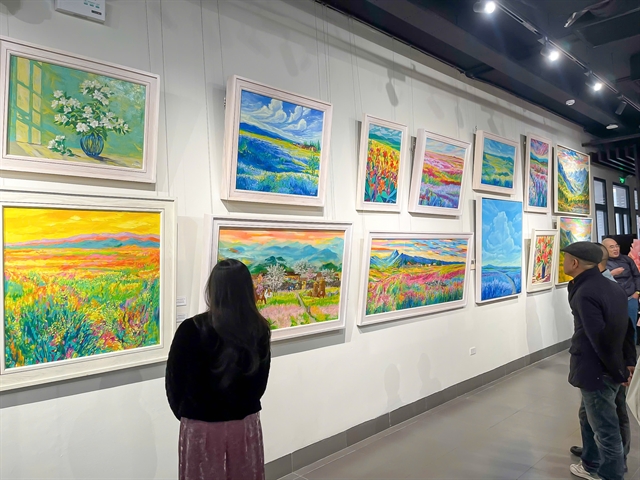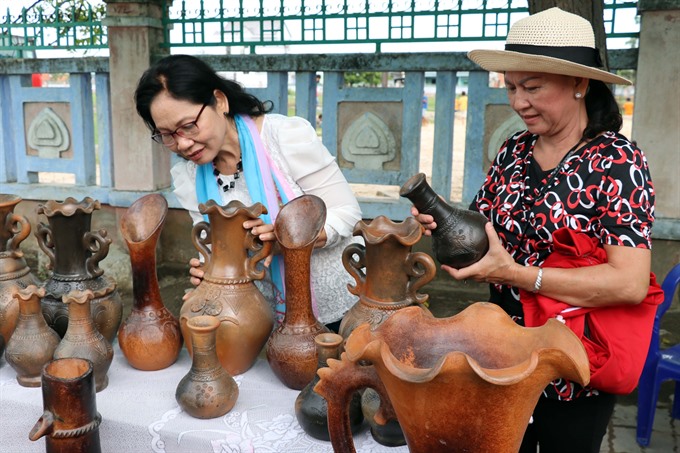 Life & Style
Life & Style

Officials from the Ministry of Culture, Sports and Tourism and representatives from the central province of Ninh Thuan met with delegates from other countries over the weekend to discuss a Cham pottery village’s application for UNESCO status.
 |
| The Bầu Trúc pottery village in Ninh Thuận Province is one of the oldest ceramic villages in Southeast Asia. VNA/VNS Photo |
HCM CITY — Officials from the Ministry of Culture, Sports and Tourism and representatives from the central province of Ninh Thuận met with delegates from other countries over the weekend to discuss the Chăm pottery village’s application for UNESCO status.
The purpose of the conference was to collect ideas from domestic and foreign scientists, researchers and experts, as well as documents to support a dossier that will be submitted to UNESCO.
Lê Văn Bình, deputy chairman of the Ninh Thuận Province’s People’s Committee, said that necessary procedures related to the dossier were nearly finished and would be sent to the UNESCO Committee in March.
The Bầu Trúc pottery village in Ninh Thuận Province is one of the oldest ceramic villages in Southeast Asia. About 85 per cent of the village’s 400 households make pottery.
The village, which has existed since the reign of the Chăm King Po Klong Garai (1151-1205), holds a ceremony every year to honour Po Klong Chan, the founder of the village.
Conference participants also discussed the value of traditional Chăm pottery-making, and other pottery hubs in Việt Nam and Asia.
They noted that Chăm pottery needed urgent protection, and proposed solutions, including new policies for village tourism. Participants also dicussed ways to transfer the craft to younger generations and introduce it to the world.
Dr Trương Văn Món of the Việt Nam National University in HCM City said that to preserve and develop traditional pottery villages, local authorities should look for ways to improve artisans’ incomes.
The Bầu Trúc pottery village is famous for its handmade pottery made with a unique technical process
One of the most outstanding features of the traditional Chăm pottery is the technique of shaping their wares by hand rather than by a wheel and their use of simple tools or shells to decorate the products
The pottery is dried under the sun for four to six hours before being fired outdoors over straw or wood.
The skills of the Chăm have created a variety of products used for daily activities and spiritual worship.
Some of the products include cylindrical jars which store water or rice, decorative lamps, reliefs, and statuettes of apsara or gods. Their works showcase the creativity and unique culture of the Chăm people.
However, because of industrialisation, Bầu Trúc pottery is fading, with fewer workers engaging in the craft.
Đàng Thị Phan, a famous ceramic artisan, said that pottery-making was more difficult now because of natural resource regulations, while the long time needed to burn wood for firing the ceramics contributed to deforestation. — VNS





 Brandinfo
Brandinfo